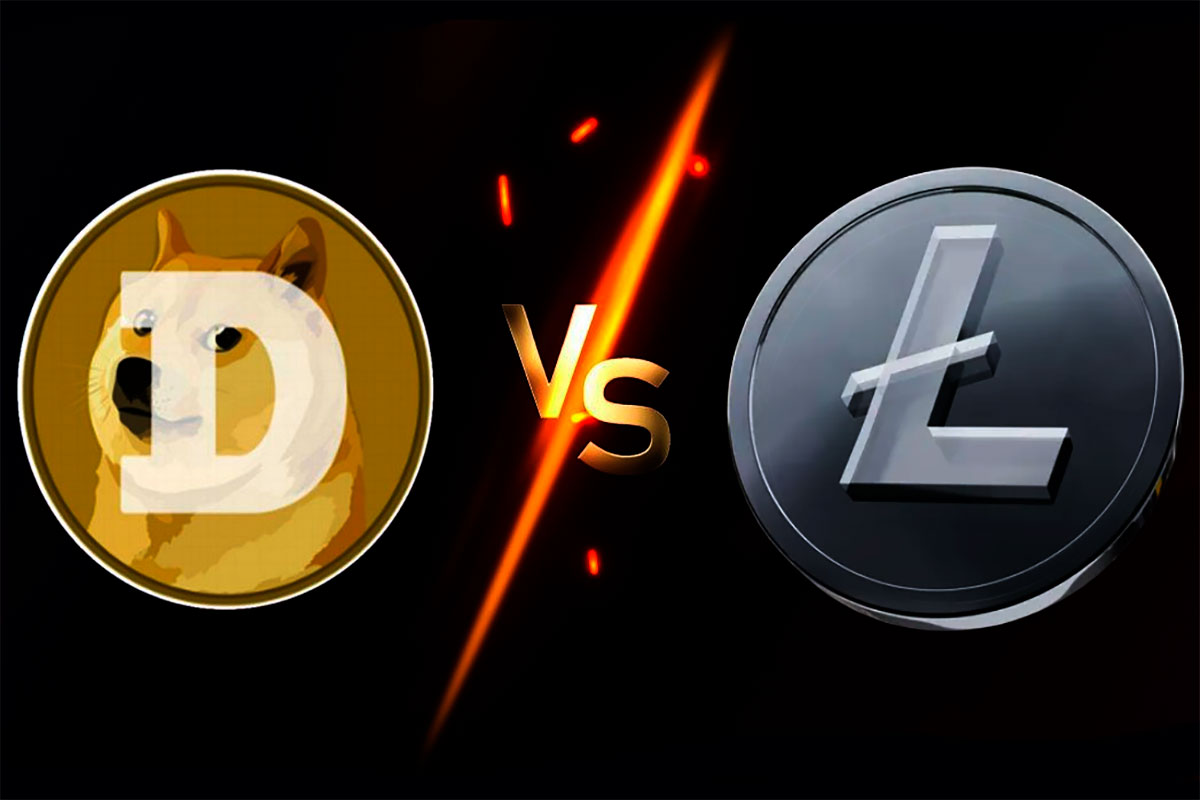Both Litecoin and Dogecoin have gained significant attention from investors due to their unique features and potential for growth. However, deciding which one is the better investment can be a challenging task. In this expert article, we’ll take a deep dive into the technical differences, market performance, community, and adoption of Litecoin and Dogecoin to determine which one may be the superior investment option. Learn about the amazing trading bot that can really change the game. Try bitcodes-ai.com now!

Litecoin vs Dogecoin: Technical, Performance, Community & Adoption
Litecoin vs Dogecoin: Technical Differences
One major difference is transaction speed and fees. Litecoin transactions are processed four times faster than Bitcoin, which translates to faster confirmation times and lower transaction fees. In comparison, Dogecoin has faster transaction times than Litecoin, with fees that are typically lower than other major cryptocurrencies.
Another key technical difference is mining algorithms and distribution. Litecoin uses a Scrypt algorithm, which requires high-performance computers to mine. This ensures that the network remains decentralized, as mining is less accessible to individuals with less computing power. In contrast, Dogecoin uses a simpler algorithm called Scrypt, which makes it easier for anyone to mine on a standard computer.
Litecoin and Dogecoin also have different block rewards and total supply. Litecoin has a maximum supply of 84 million coins, with a block reward of 12.5 coins, which reduces by half every 840,000 blocks. In contrast, Dogecoin has no maximum supply, with a block reward of 10,000 coins, which reduces by half every 100,000 blocks.
Litecoin vs Dogecoin: Market Performance
Market performance is an essential factor to consider when comparing Litecoin and Dogecoin as investment options. Both cryptocurrencies have shown promising growth over the years, but there are significant differences in their market capitalization, value, price trends, historical performance, trading volumes, and liquidity.
Litecoin currently has a market capitalization of around $15 billion, making it the 10th largest cryptocurrency by market capitalization. Its value has fluctuated over the years, with its all-time high price of $360.93 in December 2017 and its lowest price of $1.15 in January 2015. In recent years, Litecoin has shown steady growth, reaching a high of $413.87 in May 2021.
Dogecoin, on the other hand, has seen exponential growth in recent years, fueled by social media attention and celebrity endorsements. Its market capitalization currently stands at over $33 billion, making it the 6th largest cryptocurrency by market capitalization. Dogecoin’s value has also experienced significant fluctuations, with an all-time high of $0.731578 in May 2021 and a low of $0.0000869 in May 2015.
Trading volumes and liquidity are also important indicators of a cryptocurrency’s market performance. Litecoin has a higher trading volume and liquidity compared to Dogecoin, with its average daily trading volume of around $4 billion compared to Dogecoin’s average daily trading volume of around $2 billion.
Investors should consider these market performance factors when deciding which cryptocurrency to invest in. While Dogecoin has shown significant growth in recent years, it remains to be seen whether it will continue to sustain its momentum in the long run. Litecoin, on the other hand, has a proven track record of steady growth and stability.
Litecoin vs Dogecoin: Community and Adoption
The community and adoption of a cryptocurrency can also impact its market performance and long-term viability as an investment option. Both Litecoin and Dogecoin have a strong community following, but there are notable differences in their social media presence, partnerships, and merchant adoption.
Litecoin has a well-established community, with a strong presence on social media platforms such as Twitter and Reddit. The Litecoin Foundation, a non-profit organization that promotes the adoption and development of Litecoin, has also partnered with several major companies, including PayPal and Bitrefill, to enable Litecoin payments.
Dogecoin, on the other hand, has a more playful and humorous community, with a significant presence on social media platforms such as Twitter and TikTok. Despite its meme origins, Dogecoin has gained significant attention from high-profile individuals, including Elon Musk, who has tweeted about it multiple times, and Mark Cuban, who has expressed his support for it.
Merchant adoption is another important factor to consider when evaluating a cryptocurrency’s community and adoption. Litecoin has a broader adoption rate than Dogecoin, with several major companies accepting Litecoin payments, including Overstock.com and eGifter. In contrast, Dogecoin has limited merchant adoption, with few major companies accepting Dogecoin payments.
Conclusion
In conclusion, both Litecoin and Dogecoin have unique features and potential for growth as investment options. Litecoin’s technical superiority, steady growth, and broader merchant adoption make it a more stable investment choice. On the other hand, Dogecoin’s exponential growth, playful community, and high-profile endorsements make it a more risky, but potentially rewarding investment option. Ultimately, the decision to invest in Litecoin or Dogecoin depends on the investor’s risk tolerance, investment strategy, and long-term goals.









